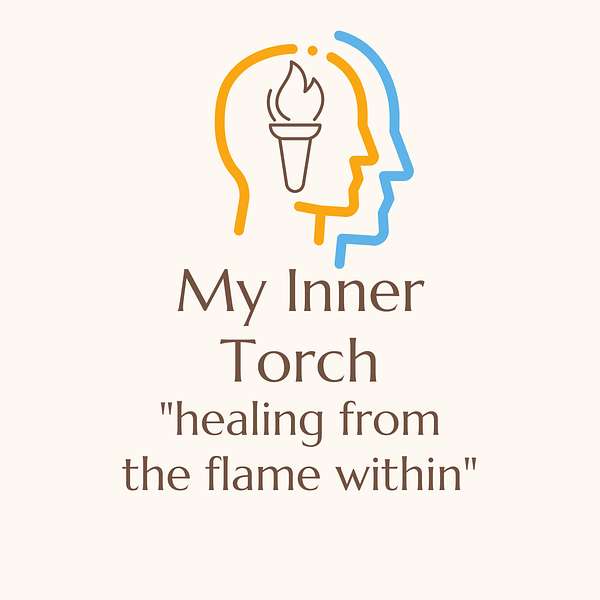
My Inner Torch
My Inner Torch offers direct and personal insight with help for those of us in a relationship with someone who is undiagnosed/diagnosed with a Cluster B Personality Disorder. This is a safe place to come for words of inspiration that draw from my personal experiences and is produced to gain understanding and to find direction as we navigate through the often difficult relationships with those we love who suffer with a Cluster B personality disorder that includes BPD and NPD. PLEASE NOTE: This podcast is NOT for those who suffer with these disorders. This podcast is for survivors of these challenging and difficult relationships.
My Inner Torch
Forgive Yourself!
🎯 Key Takeaways
Core Points:
- I need to shift my focus from forgiving the cluster B individual to forgiving myself to start my healing process.
- I acknowledge that I may have made less than ideal choices, like ignoring red flags or hoping for change, without blaming myself for the abuse I received.
- I recognize the cycle of abuse, gaslighting, and manipulation inherent in my cluster B relationship.
- I will verbalize self-compassionate statements, such as apologizing to myself for abandoning my needs and silencing my inner voice.
- I understand that self-forgiveness is about liberating myself from guilt and self-criticism, not excusing the abuser’s actions.
- I will prioritize my healing by removing myself from the abusive situation to reclaim my energy, worth, and life.
🔍 Summary
Forgiving Myself, Not Them
The core message is for me to shift the focus of forgiveness from the cluster B individual to myself. This involves recognizing my need to forgive myself for choices made within the relationship. It marks a critical step toward my healing and reclaiming my life. I understand that true healing begins when I turn my focus inward and start forgiving myself, rather than endlessly forgiving the other person.
Acknowledging My Choices and Red Flags
I am learning to acknowledge that I may not have made the best choices, such as entering or staying in the relationship. This involves understanding that ignoring red flags, hoping for change, and investing too much can be part of my journey. Acknowledging these choices doesn’t mean I deserved the abuse, but rather, that it’s important for me to understand how I arrived at my present situation.
Breaking the Cycle of Abuse
I now recognize the cycle of abuse in my cluster B relationship, which includes rage, gaslighting, and manipulation. I understand that I often ended up apologizing for the abuser’s behaviors. Breaking free involves recognizing this pattern and understanding that forgiving the abuser only perpetuates the cycle, giving them permission to repeat the abuse.
Practicing Self-Compassion
Self-compassion means offering myself the same kindness and understanding I would offer a friend. This includes verbalizing statements of self-forgiveness, such as apologizing to myself for abandoning my needs, silencing my inner voice, and ignoring red flags. Saying these things out loud validates my feelings and helps me believe I can move on.
Liberation Through Self-Forgiveness
I now see that self-forgiveness is not about blaming myself or excusing the abuser, but about liberating myself from guilt, self-criticism, and the endless “what ifs” planted by the cluster B individual. It’s about shifting from feeling like a victim to recognizing myself as a survivor who has learned and grown. This shift allows me to stop living in their shadow and start living in my own light.
Reclaiming My Life
The final step involves me reclaiming my life by forcibly removing myself from the abusive situation. While still in the situation, self-forgiveness tools can help me get through the day, week, or even years. Ultimately, I know true healing requires distance and a commitment to prioritizing my own well-being, energy, and worth.